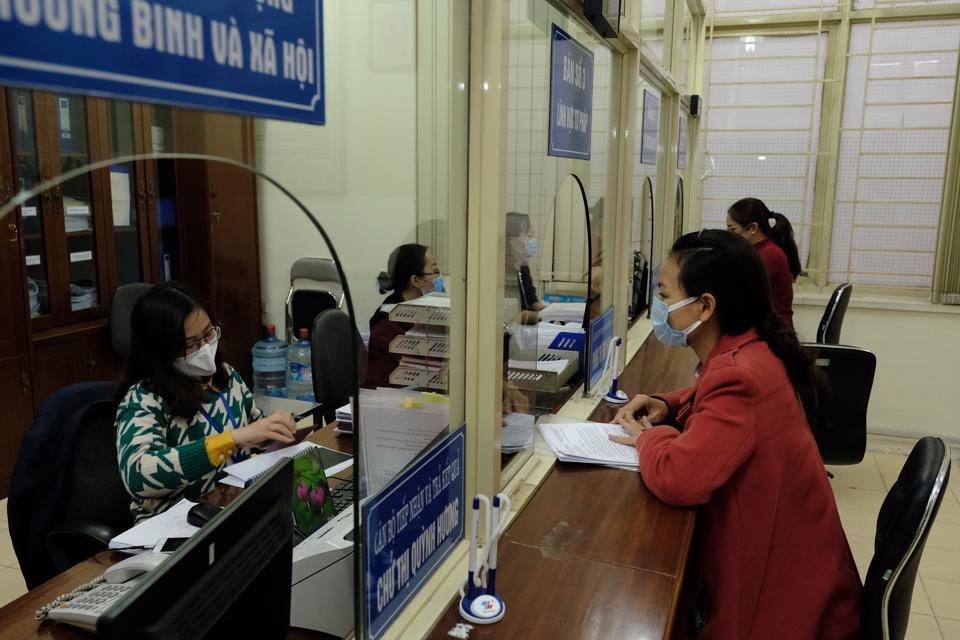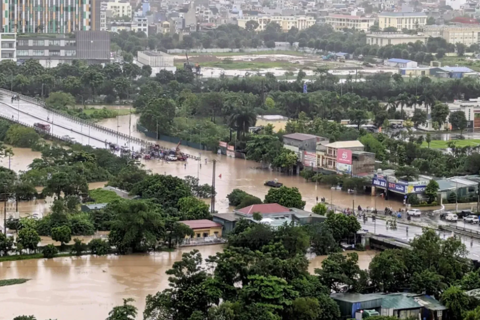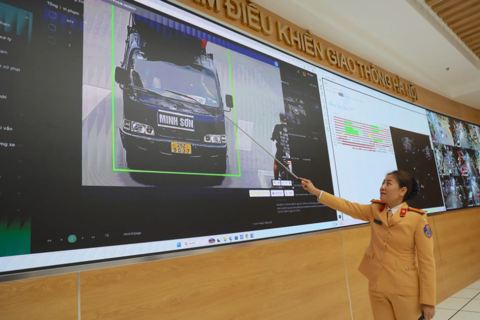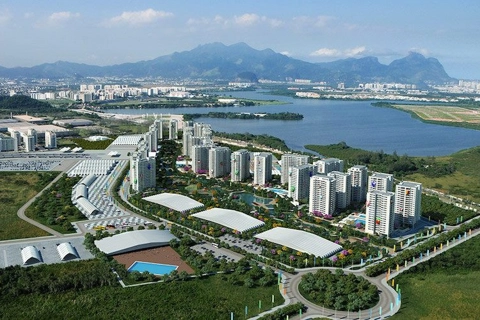Hanoi gears up for development of digital government
Administrative reforms remain a priority for the local authorities despite the ongoing struggle with the pandemic situation.
Hanoi is taking drastic steps to push for the development of e-government and eventually a digital government, seen as a key solution to ensure greater public quality services.
| Locals at Cau Giay District People's Committee. Photo: Pham Hung |
The city aims to finish the digitalization process among public agencies by 2025 and the completion of an open database to help the people and businesses in realizing administrative procedures.
Such a step is considered essential for Hanoi to form an e-government model before 2025, and later a digital government.
In working towards this goal, Hanoi expects to continue pushing for administrative reform in the cyber environment for the greater convenience of businesses and people.
Since early 2021 and during the pandemic, Hanoi has been accelerating the application of IT and technologies in state governance, as well as streamlining apparatus to better respond to the pandemic and assist socio-economic recovery.
Director of the Hanoi’s Department of Internal Affairs Vu Thu Ha said administrative reforms remain a priority for the local authorities despite the ongoing struggle with the pandemic.
So far, Hanoi has simplified 177 administrative procedures out of the total 550 under review, and made changes to 1,800 internal processes to save cost and time for businesses and people, Ha said.
Under the city’s plan No.161 on pushing for greater efficiency in processing administrative procedures in the 2021-2025 period, Hanoi stressed the importance of digitalization in state governance.
In 2021, local administrative units received a total of 3.5 million applications, 99.7% of which were processed on or even ahead of the deadline. By late 2021, Hanoi has a total of 1,843 administrative procedures, with 1,685 being qualified to be carried out at the advanced public online services of stages 3 and 4.
Coming to 2022 and determined to promote e-government, Hanoi expects to further trim off 60% of the local administrative procedures; 30% of documents would be processed via online public services at stages 3 and 4; the results of documents processing will be incorporated into the national public online services.
In addition, 30% of the people and businesses would not be required to provide additional information after having successfully conducted an administrative process, thanks to the sharing information system between different agencies.
The use of online services is expected to help cut the waiting time for businesses and people in doing administrative procedures by a maximum of 30 minutes.












